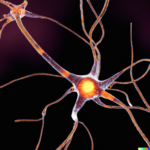### Exploring Next-Level Integrative Strategies to Optimize Alzheimer’s Patient Outcomes
Alzheimer’s disease is a complex condition that affects millions of people worldwide. While traditional treatments like medications can help manage symptoms, they often do not address the root causes of the disease. In recent years, there has been a growing interest in integrative strategies that combine conventional medicine with complementary approaches to improve patient outcomes. Here, we will explore some of the next-level integrative strategies that are being developed to optimize Alzheimer’s patient care.
#### 1. **Personalized Medicine and Wearable Devices**
Personalized medicine is a key area of focus in modern healthcare. For Alzheimer’s patients, this means tailoring treatment plans to each individual’s unique needs. Wearable devices, such as smartwatches and fitness trackers, can monitor symptoms and provide real-time data to healthcare providers. These devices can track physical activity, sleep patterns, and other vital signs, helping clinicians make more informed decisions about patient care.
For example, wearable devices can detect early signs of cognitive decline by monitoring changes in gait, sleep patterns, and other physiological markers. This early detection allows for timely interventions that can potentially slow down the progression of the disease.
#### 2. **Liquid Biopsies and Biomarkers**
Liquid biopsies are a new diagnostic tool that involves analyzing blood-based biomarkers to detect neurodegenerative diseases like Alzheimer’s. These biomarkers can indicate the presence of tau proteins, which are associated with Alzheimer’s pathology. By detecting these biomarkers early, healthcare providers can initiate treatment before symptoms become severe.
Liquid biopsies offer a non-invasive and relatively quick way to diagnose Alzheimer’s, which is crucial for early intervention. This approach can significantly improve patient outcomes by allowing for more targeted and timely treatment.
#### 3. **Integrative Neurology and Multidisciplinary Care Teams**
Integrative neurology combines conventional medical treatments with complementary approaches such as mind-body therapies, exercise, nutrition, and socialization. This holistic approach focuses on optimizing the patient’s overall well-being, not just managing symptoms.
Multidisciplinary care teams, which include physicians, physical therapists, occupational therapists, dietitians, and behavioral health counselors, are essential in integrative neurology. These teams work together to create personalized care plans that address the physical, emotional, and social needs of patients.
For instance, a patient with Alzheimer’s might benefit from a combination of medication, physical therapy to maintain mobility, nutritional counseling to ensure proper diet, and social support to combat isolation. This comprehensive approach can significantly enhance the patient’s quality of life.
#### 4. **Assistive Technologies for Dementia Care**
Assistive technologies (AT) are designed to support individuals with dementia in their daily activities. These technologies can include reminders for daily events, social interactions, and mental stimulation activities.
A recent study on assistive technologies for dementia care developed a user-centered reminder system that helps individuals with mild dementia engage in more physical and social activities independently. The system uses visual and audible cues to remind patients about available activities, ensuring they stay active and engaged.
This type of technology can be particularly beneficial in residential care settings where staff may not have the time to monitor each patient’s activities closely. By providing relevant information at the right time, AT can improve the quality of life for both patients and caregivers.
#### 5. **Mind-Body Movement Programs**
Mind-body movement programs, such as Tai Chi, have been shown to have beneficial effects on cognitive outcomes for older adults with cognitive decline. These programs emphasize movement, body awareness, personal meaningfulness, and social connection.
A randomized controlled trial compared the effects of a multidomain mind-body program and traditional Chinese mind-body exercise (Tai Chi) with a health and wellness education control condition. The results showed that both mind-body programs improved cognitive function and brain functional connectivity, suggesting that these interventions could potentially delay dementia onset in some individuals.
### Conclusion
Optimizing



